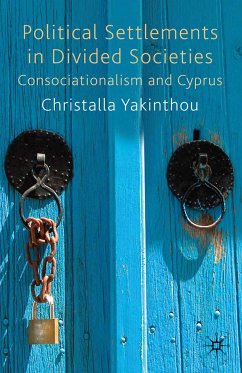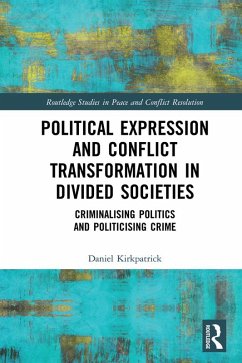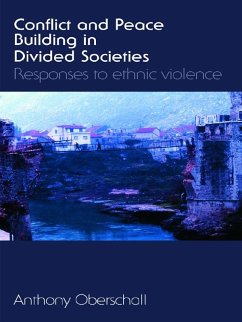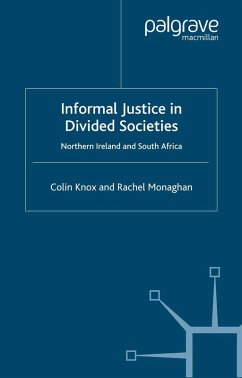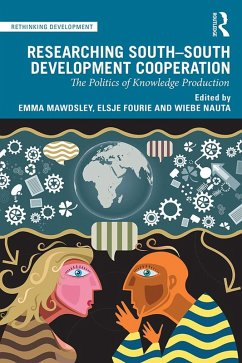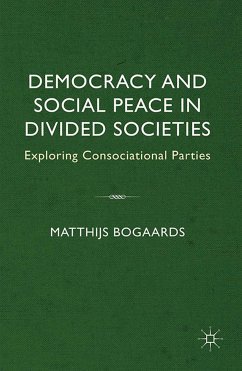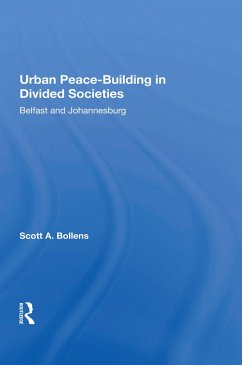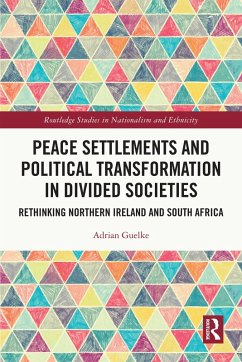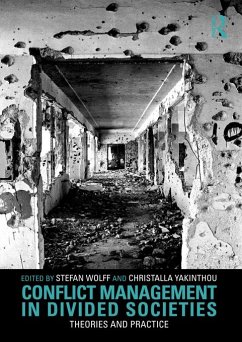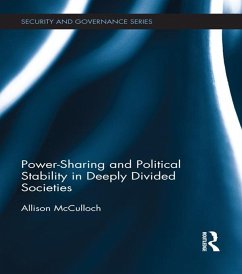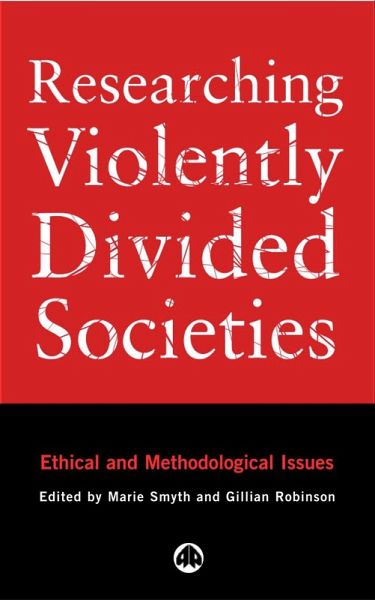
Researching Violently Divided Societies (eBook, PDF)
Ethical and Methodological Issues
Redaktion: Smyth, Marie; Robinson, Gillian

PAYBACK Punkte
47 °P sammeln!
All societies are, to a certain extent, divided by conflicts over race, ethnicity, religion and class. However, in societies such as Britain and the United States these tensions are contained and managed by social, economic and political mechanisms. This book, produced as a result of an international collaboration between researchers in Eastern Europe, Africa, the Middle East, Northern Ireland and elsewhere aims to: * Provide a guide to the issues faced by researchers working in violently divided contexts; * Document the insights and practice wisdom of practising researchers operating in such ...
All societies are, to a certain extent, divided by conflicts over race, ethnicity, religion and class. However, in societies such as Britain and the United States these tensions are contained and managed by social, economic and political mechanisms. This book, produced as a result of an international collaboration between researchers in Eastern Europe, Africa, the Middle East, Northern Ireland and elsewhere aims to: * Provide a guide to the issues faced by researchers working in violently divided contexts; * Document the insights and practice wisdom of practising researchers operating in such contexts; * Afford access to the lived experience of those researchers and the ethical and methodological challenges which face them; * Present accounts and analysis which illustrate a wide range of diverse experiences and perspectives on the experience of doing research in violently divided societies; * Explore the involvement of the researchers with the research material and the impact of doing the research on them. A range of ethical and methodological issues are covered, and the specific demands of conducting research in war-torn and divided societies has stimulated the contributors to analyse and critique issues such as the contribution of research to society, the benefit of research to respondents, and issues of objectivity - issues of concern to all researchers. However, in the often stark circumstances in which the contributors work, these issues take on an urgency and clarity that can potentially illuminate research practice generally. The book deals with the methodological and ethical issues arising when researching conflicts in violently divided societies where there is no consensus about policing, law and order, the impartiality of the state or indeed about the legitimacy of the state itself. With contributions from researchers who have worked in a range of very different divided societies around the world, it examines the conditions under which such inquiry is conducted and looks at the obstacles that researchers face. Researching Violently Divided Societies looks in detail at different case studies to offer a sound understanding of the most effective methodological approaches for improving responses to division and violence. Chapters cover the role and function of research in divided societies in Africa; the efficacy of research in Northern Ireland; dilemmas of identification and ethnography; research by insiders and outsiders; research for empowerment in Cambodia; the role of research in managing conflicts in Nigeria; researching ethnic conflict in Post-Soviet central Asia; a first-time researcher's experience in Bosnia; the ethics of psychiatric research in war zones; and a final comparison of policy.
Dieser Download kann aus rechtlichen Gründen nur mit Rechnungsadresse in A, D ausgeliefert werden.




